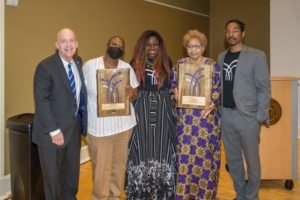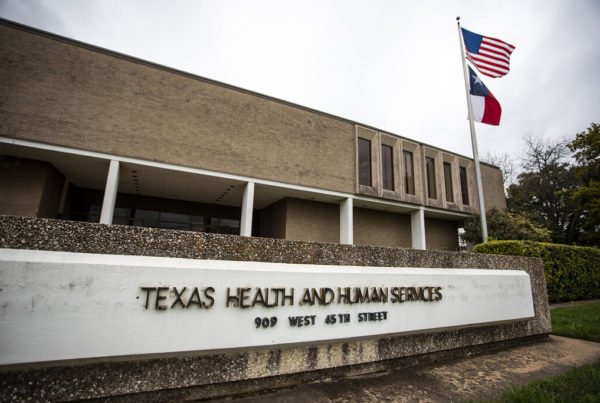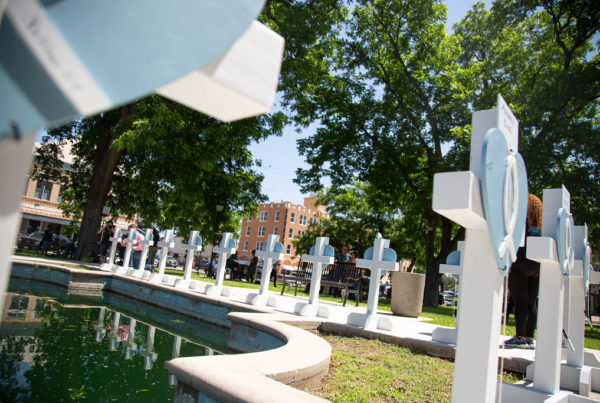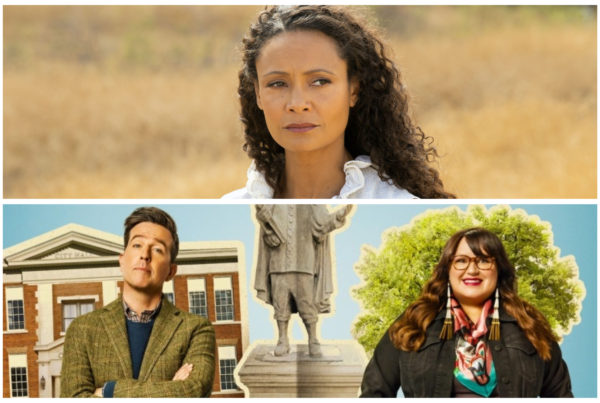From KERA:
It all started in a library cubicle.
Sylviane Greensword was paging through a memoir when she noticed a name: Charley Thorp.
Greensword, a postdoctoral fellow at TCU and the lead researcher for the school’s Race and Reconciliation Initiative, was on a mission to document Black life during TCU’s early years; from 1861 – 1891.
Understanding the life of someone who lived more than 150 years ago is a challenge under any circumstance, but it can be particularly difficult when trying to uncover truths about Black American life.
Historians search archives, review old Census records, read through newspaper clippings and rely on oral histories. Taken together, these sources are used to make sense of the past. But there are still many gaps.
“So I go to the library and I pick up book after book. History of TCU, geography of TCU, the landscapes of TCU. I opened book after book after book. I look at websites. There is absolutely nothing about black people,” said Greensword.
That is, until she found mention of Charley Thorp in a memoir written by Joseph Lynn Clark, the son of TCU founder Randolph Clark.
“Charley was like one third of that chapter, so it wasn’t like a whole chapter on ‘Black Charley.’ But hey, that’s better than what I’ve seen in most books, because in most books, you would believe that there was like no black people [on campus] until the 1960s,” said Greensword.
Greensword decided to keep digging to better understand Thorp’s connection to TCU’s founding years.
“They did everything but teach”
Greensword and her team learned that Charley was born into slavery in the 1850s. He was enslaved by Colonel Pleasant Thorp, who founded the Thorp Springs community, where the original TCU campus was housed.
Post-emancipation, Charley remained in Thorp Springs. He married a woman named Kate and they had seven children.
In 1873, when Randolph and Addison Clark established AddRan College, which would later become TCU, Charley and Kate took on crucial responsibilities for the school.
“They did everything but teach,” said Marcellis Perkins, the Race and Reconciliation Initiative’s Graduate Research Assistant.
Kate was the campus midwife and laundress. Charley was the campus firefighter and security guard. He also landscaped the grounds, tended to sick students and repaired whatever needed mending.
“Without their contributions there would be no functional campus,” said Greensword.
Charley was so well respected on campus that following his death, TCU co-founder Randolph Clark wrote an editorial in the local paper praising his contributions to the school, going so far as to say that he wished Charley could have attended the school himself. Black students wouldn’t be admitted to TCU until 1964.
So Charley, Kate and their children couldn’t attend, and their significant contributions to the school’s early years were unacknowledged and forgotten. Until now.
Reckoning with history
TCU’s Race and Reconciliation Initiative is a five-year research project aimed at better understanding the university’s relationship to slavery, the Confederacy, and racism. Established in the wake of George Floyd’s murder in the summer of 2020, the effort is part of a national movement of Universities Studying Slavery, a consortium of more than 90 schools researching their institutional histories.
Frederick W. Gooding, Jr. a history professor at TCU and the chair of the Race and Reconciliation Initiative, says the erasure of Kate and Charley’s contributions speaks to a larger power dynamic in which the stories of Black Americans have not been recorded.
“They were unequivocally indispensable, but yet inexplicably excluded?” said Gooding. “They were so important that they were invisible? That’s just not making any sense.”
For Marcellis Perkins, the graduate student researcher for the Race and Reconciliation Initiative, the story of Charley and Kate is just one example of Black life and Black contribution that’s missing from the historical record.
“Their name might not be on the building, but without them, these things cease to exist.”
Acknowledging all the contributors
Historian Daina Ramey Berry, the Chair of the History Department at The University of Texas at Austin, says TCU’s latest research will allow the school to tell a more holistic version of its history. According to Berry, this dynamic isn’t unique to TCU, faculty members and students at schools across the country are working to better understand their histories.
“It’s allowing universities to look at all the key players that contributed to the university, not only the founding, but the development of a school. And some of those contributors look differently than what the history books have told us,” said Berry.
Berry said that TCU’s research into the Thorps’ life shows how the legacy of slavery extends well beyond emancipation.
“There’s not a hard stop in 1865 when slavery ended. The families that were born before 1865, the donors, the legislators, the teachers, the students, some of them come from histories that built themselves on the lives of the enslaved and on the history and the institution of slavery, Berry said. “Looking at dates as a marker to either disassociate or associate with slavery is not the best approach.”
Delayed Recognition
Now that the Thorps’ contributions to TCU had been brought to life, the research team was eager to share their story with the larger community.
And since Charley and Kate couldn’t receive the recognition themselves, Sylviane Greensword set out to find people who could.
The research team took on a genealogy project, working to identify living descendants of Charley and Kate Thorp.

Chancellor Victor Boschini, Sylviane Greensword and Frederick Gooding, Jr. present Loriessa Randle (second from left) and Debra Duncan Holmes (second from right) with the Plume Award, in recognition of their ancestor Charley Thorp’s contributions to TCU’s founding years.
Leo Wesson /TCU
Using census records, birth and death certifications, funeral notices, Greensword began to trace the children, grandchildren, great grandchildren of Charley, until finally she was able to identify his living descendants. Next, Greensword used “21st century methods,” social media, to make contact.
One of those messages went to Debra Duncan Holmes, a Dallas resident and a great-great granddaughter of Charley Thorp.
“She sent me a message, she said ‘call me.’ And I’m like, I don’t know this lady. I don’t know her,” said Holmes.
Eventually though, Holmes did call and they ended up talking for an hour about Holmes’ ancestor, Charley Thorp.
By making contact and sharing the story of Charley with his descendants, Greensword was able to connect family members who didn’t know each other before.
A little homecoming
Last month, TCU invited Thorp’s relatives back to campus for the school’s second Reconciliation Day. More than 30 descendants attended, some traveling from out of state.
In front of a packed auditorium the school officially recognized the contributions of Kate and Charley Thorp, and presented their family with plaques to commemorate the occasion.
“I think the term reconciliation is perfect,” said descendant Loriessa Randle who traveled from New Mexico to attend. “I wouldn’t say this is the end because we have met some family here today. This whole event, I’m actually overwhelmed by it.”
Debra Holmes agrees.
“Today has put some more history in my life, meeting family from afar, bringing them close to where we can talk and enjoy each other,” Holmes said. “And to know that this school is a valuable part in Charley’s life means it is a valuable part in my life.”













